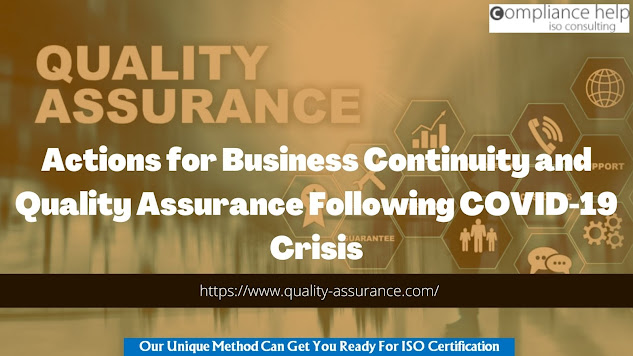ISO 9001 Quality Management System & Its Benefits
No matter what your main business concern is, at this moment- employee training, gap analysis, or internal audit- a dependable Quality Management System- will always turn your task easier. As per several surveys, more than one million organizations, across the globe, have admitted potential benefits of QMS. Hence, it is clear that the ISO 9001 certification takes a pivotal role in making the business perform better. This certification has a universal appeal. But it is important for every business owner to know how this standard affects that particular organization. Is this question floating around your mind as well? Then, let’s try to find out the answer together.
According to the International Organization for Standardization, ISO 9001 Quality Management Standard:
“Allows organization flexibility in the way it chooses to document its quality management system (QMS). This enables each individual organization to determine the correct amount of documented information needed in order to demonstrate the effective planning, operation, and control of its processes and the implementation and continual improvement of the effectiveness of its QMS”
From the above description given by ISO, it is clear what matters the most is the demonstration of the efficiency of the entire system. When it comes to a demonstration of the performance of your QMS, it is important to consider how your QMS fits in your business set up. You must align the objectives of your quality assurance system with the objectives of ISO 9001 Certification. Let’s consider a case where the QMS is compliant with ISO 9001:2015 requirements and able to escalate the business performance. In such a case, the business will be able to enjoy some benefits, such as:
• Improvement of quality
• Increase in sales
• Better engagement of the shareholders
• Better employee and management engagement
• Enhanced brand awareness
• Identity in the domestic and national market
These are the major benefits an organization is likely to enjoy by implementing an ISO certified QMS in the business management system. Now we are going to discuss three vital areas upon which QMS has maximum influence.
Employee Training
Who doesn’t know that well-trained employees are the pillars of a successful business? Several studies have revealed that companies having well-trained employees are ruling their respective industries. An effective can assist you in employee training. This system can help you determine whether
• The employees have received the kind of training they need or not
• The organization is planning the training goals properly or not
• The employees are understanding what the training program is trying to define or not
Apart from the manufacturing process, QMS is flexible to include the following skills as well:
• Managing employee skills as per the job description
• Preserving their past employment record
• Creating and maintaining auditable records
Corrective and Preventive Actions
Addressing corrective and preventive actions may sound easy, but it is not! In fact, many businesses are looking for an effective way to deal with the Corrective Action and Preventive Action or CAPA issues. The best way is to ensure that your CAPA system is robust. It is important to remember that not every single problem should be treated like CAPA. You have to weed out the CAPA and non-CAPA issues. For doing so, you need to determine whether the concerned issue requires a thorough investigation of the root cause or not. Moreover, you should determine whether the issue requires corrective action for fixation or not.
It would be useful if you categorize the CAPA-based risks into high, medium, and low level. Moreover, an ISO 9001 Quality Management System must include a statistical analysis to understand the potential consequences for the employees.
Audits
At the time of auditing, it all will come together to you. When an audit is going on, the auditors may ask for a detailed history. Hence, you should prepare the document that can show how much information is gained, tailored, retrieved, and transmitted. You need to keep everything prepared before the audit takes place. A QMS helps to organize various tasks, maintain interaction among them, and contain the records properly. Therefore, having an ideal QMS makes your audits much easier and less time-consuming.
Sum up
Before winding up the topic, let’s reflect on the fact that ISO 9001:2015 does not instruct an organization about how to reach the objectives or goals. It just helps an organization establish its credibility and improve their overall performance.




Great article to read, all the tips are great....
ReplyDeleteISO Consulting Services
AS9100D Consultant